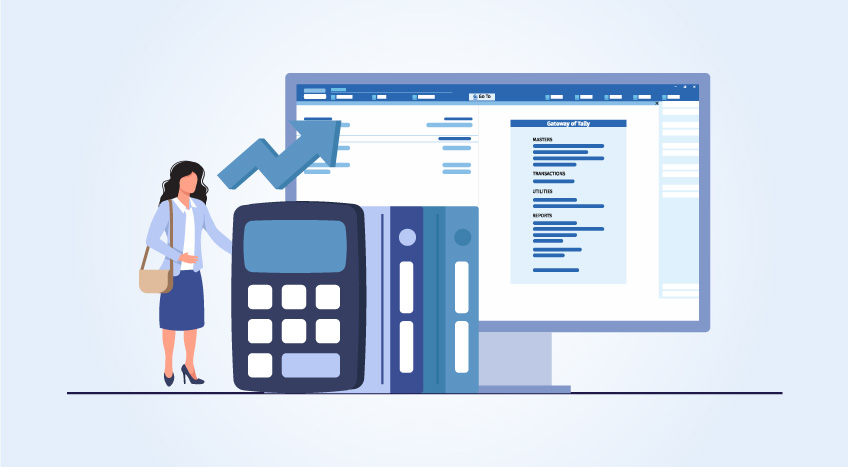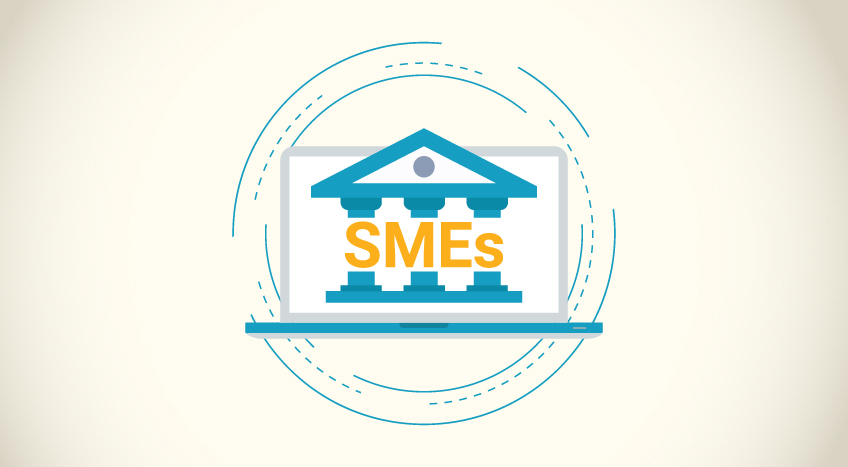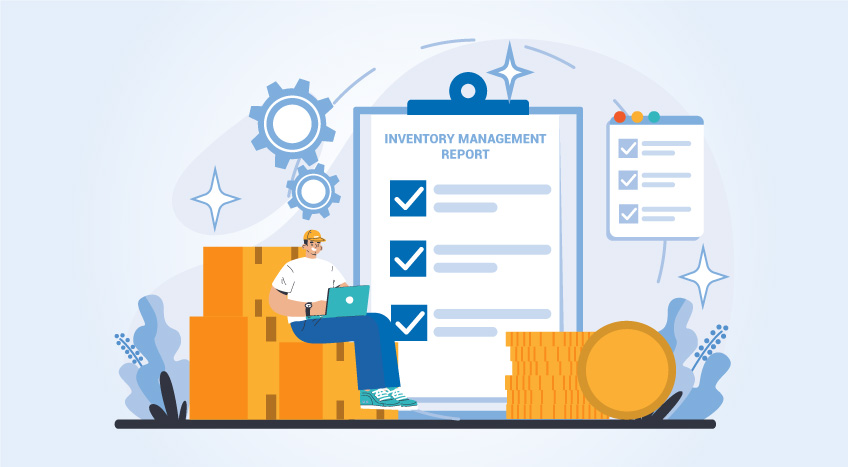- Why manage payroll?
- How to manage payroll?
- 8 Tips for managing payroll for small businesses
- What is a payroll management system?
- Manage payroll with TallyPrime
Why manage payroll?
Payroll is a must for every type of business, regardless of how many employees are part of the business. Whether you are managing 5 or 100 employees, you must manage payroll in some form. Payroll management is vital because you must pay your employees the right amount at the right time and ensure your business is complying with tax obligations correctly. You must also keep income tax withholding records, Social Security (FICA) Tax records, and Federal Unemployment Tax (FUTA) records. You can store these accurate records only if you manage payroll properly.
|
Benefits of Payroll Management Software for Small Businesses in USA |
How to manage payroll?
Payroll management can vary, but certain basic steps remain the same. Regardless of how your business manages payroll, here are some important steps that you should use to manage payroll.
Collect all relevant employee data: You must collect the relevant employee data including Social Security numbers, benefit enrolment deductions, and tax withholding certificates. You should ensure all these are updated and make changes if any changes have occurred.
Figure out gross pay: The gross pay calculation depends on exempt and non-exempt individuals. For exempt employees, you need to divide the yearly salary by the number of payments. For non-exempt employees, you need to track how many hours the employees have worked and multiply it by the per-hour rate.
Determine net pay: You need to deduct or subtract the pretax contributions followed by all withholdings such as federal income tax and FICA tax. If local tax withholdings apply, then subtract these too. You want to then deduct post-tax amounts.
Employer tax contribution: As an employer, you are required to pay some taxes too such as half of the FICA. Make sure you calculate all the tax contributions you must make from your end. Penalties for not paying FICA and other taxes are high so make sure you understand the process and calculate accurately.
Determine how to store payroll records: Businesses are supposed to keep payroll records for three years minimum. In some states of the U.S., you are required to keep the payroll records for longer times. Find out how many years you must store the payroll records and store them in a safe place for the future.
Pay employees: States mandate the payment methods that employers can use to pay their employees. Generally, you can pay them through a paycheck, pay card, or electronically. Find out the acceptable ways in which you can pay your employees and pay them accordingly.
Pay government authorities: You must know when to send the taxes to the relevant government authorities. Make sure you send all the withheld pay and taxes from your end at the right time to avoid penalties and fees. It is best to set up alerts and reminders, so you send all the taxes to authorities on time.
File tax returns: An important step in managing payroll is to file reports. You must show how much pay you withheld, how much taxes you paid, and so on to the authorities. Filing tax returns can take place annually or quarterly. It depends on the state policies, and you must do so accordingly.
Tips for managing payroll for small businesses
Managing payroll is an uphill task for many business owners because it requires careful computations. Here are some tips to better manage payroll for small businesses.
Use a payroll management system: A payroll management system can be a boon for a business that is used to the manual process. It saves hours, eliminates inaccuracies, increases productivity, and prevents penalties imposed due to inaccurate data storage. As a small and growing business, you want to manage your payroll properly from the beginning. A payroll management system helps you achieve that. If you do not have funds to hire staff specifically for payroll then you can use a system like TallyPrime to manage payroll yourself and pay your employees on time.
Maintain a calendar: Payroll is challenging and a part of the challenge is keeping up with the various deadlines. You don’t want to miss out on filing anything and pay fees for late filing. Maintaining a calendar and using reminders ensures you always do everything payroll-related on time. Certain obligations may require more time than others so ensure you have enough time saved up to complete those tasks on time without sacrificing other parts of your business. A calendar will act as a guide. You can share the calendar with employees such as managers too.
Resist utilizing payroll tax funds: Payroll tax funds are to be paid to the concerned authorities. You may want to take out funds from it when you are low on cash. But it is best to avoid doing this altogether because it can be detrimental to your business’s health. Let us say you take out some funds but are unable to refill the tax funds. What will you do then? This is why it is best to avoid taking out the payroll tax funds in the first place. You can even open a separate bank account for payroll purposes if required to ensure all the funds for taxes are kept safe elsewhere.
Train HR: Small businesses with an HR department should ensure the HR is properly trained to handle payroll processing. Even if the HR is previously trained with payroll, it is best to include training to ensure they align with your business’s processes. Training HR helps improve collaboration between the various departments. It helps to simplify the otherwise tedious process as HR knows what needs to be done and when. Training answers all the vital questions and allows HR to come on board with new systems and processes which can greatly improve efficiency.
Track employee attendance: Tracking employee attendance is the basic requirement of payroll and you must ensure you are tracking accurately. You don’t want to underpay or overpay an employee because it will cause inaccurate payroll calculations. If you continue to track incorrectly, you will be left with an inaccurate balance which can cause other problems for your small business. You can avoid this by using a payroll management system like TallyPrime to effectively and accurately track employee attendance.
Ensure payroll transparency: The payroll process must be transparent and all employees should come on board to avoid any misinformation. For instance, you can have a payroll policy that highlights information such as expectations regarding employee reporting, how employees get promoted, wages calculations, how salaries are calculated, and how the entire payroll process works. By including all the details of things that the employees will be directly affected by, you ensure a better business environment. Make sure you have a proper payroll policy and update it when required.
Get feedback from employees: You may think that you have outlined everything clearly in the payroll process. But your employees may think otherwise. You should get feedback from your employees and encourage them to ask questions if they have any. By doing so, you are opening up the communication lines allowing for better collaboration and a better work environment. As employees will feel more included when they know their opinions are being heard, they are likely to be more productive. You can hold meetings regarding payroll, and ask them about the payroll-related problems.
Always be updated about tax regulations: Tax regulations change and it is your job as the employer to stay updated with the latest federal and state tax obligations. Taxes can be confusing at first and so it is best to take your time to understand them. Taxes dictate how payroll is calculated and so without tax information, you may end up incorrectly calculating payroll. You should also take the help of a professional if you are having a tough time understanding taxes. You should read the government websites that contain all the required information as they contain the latest updates and changes to taxes.
What is a payroll management system?
A payroll management system is a software solution with the sole aim to make payroll management easy. It makes payroll management efficient and takes the headache out of managing everything manually or outsourcing to a third party. Payroll management automates the payroll process and helps save time and resources. Payroll management systems can be provided alone or along with other capabilities. TallyPrime is the prime example of business management and accounting solution for MSMEs that provides payroll management as a part of the software package.
Manage payroll with TallyPrime
Manage payroll like a pro with TallyPrime’s payroll managing system. TallyPrime has salary processing and payroll accounting capabilities that enable you to handle exceptions, group employees, and define salary details. You also get a flexible attendance feature whereby you can track when they have been present and absent from work. With a multiple calendar feature, you can do so much more about your payroll processing with TallyPrime as you get the freedom to choose how you manage payroll. TallyPrime provides an excellent way for payroll management and business management in one tool.
Read More:
Explore More Products










